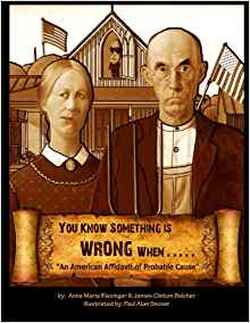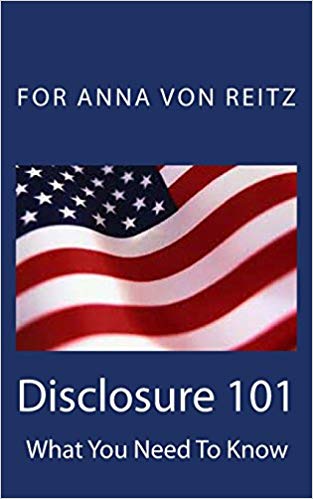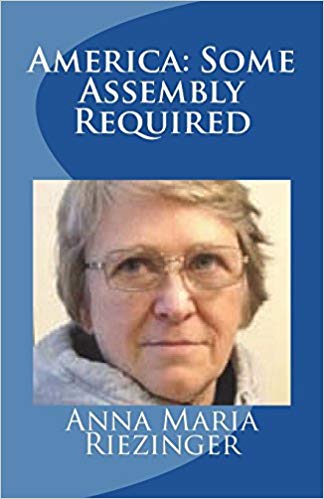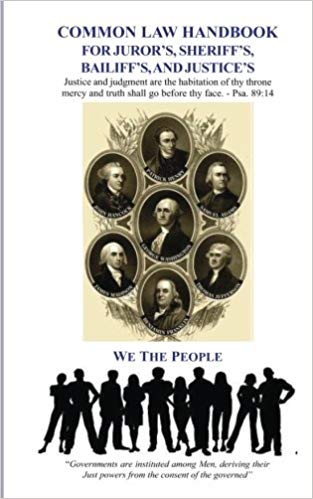 By Anna Von Reitz It has come as a great shock to some people to learn that there are two completely separate political statuses in this country that are the result of service obligations of public employees known as either “United States Citizens” or “Citizens of the United States” and those being served, the People of the States. This fundamental fact should be taught to every schoolchild in America, but as a result of lapses and the self-interest of our employees, has not been. The unincorporated States of the Union acting by and through their unincorporated Holding Company, The United States of America, are the actual Landlords and Employers of the Federal Government, both Territorial and Municipal. The People of the States are the owners and operators of the States of the Union. We are owed the Good Faith Service of all Federal Employees and Agencies and the prompt and correct consideration of our proper political status, once we claim it and properly, explicitly enunciate our Will to be recognized as American State Nationals or American State Citizens. A brief citational history was recently forwarded to me by a reader and as I like the way this is organized, I am publishing it as an education “short course” in the subject and as proof, if any is needed, that Americans are naturally Lawful Persons and occupy a political status separate from US Citizens: 1. State Citizens v. US Citizens 2. “There are two classes of citizens, citizens of the United States and of the State. And one may be a citizen of the former without being a citizen of the latter” — Gardina v. Board of Registers 48 So. 788, 169 Ala. 155 (1909) 3. Federal citizenship is a municipal franchise domiciled in the District of Columbia, and the political rights of federal citizens are franchises which they hold as privileges at the legislative discretion of Congress.” —(Murphy v. Ramsey , 114 U.S. 15 (1885)). 4. “The only absolute and unqualified right of a United States citizen is to residence within the territorial boundaries of the United States.” — US vs. Valentine 288 F. Supp. 957 5. “Therefore, the U.S. citizens [citizens of the District of Columbia] residing in one of the states of the union, are classified as property and franchises of the federal government as an “individual entity.” — Wheeling Steel Corp. v. Fox, 298 U.S. 193, 80 L.Ed. 1143, 56 S.Ct. 773. 6. “A “US Citizen” upon leaving the District of Columbia becomes involved in “interstate commerce”, as a “resident” does not have the common-law right to travel, of a Citizen of one of the several states.” — Hendrick v. Maryland S.C. Reporter’s Rd. 610-625. (1914) 7. “There is in our Political System, a government of each of the several states and a government of the United States Each is distinct from the other and has citizens of its own.” — US vs. Cruikshank, 92 US 542, 8. …the privileges and immunities of citizens of the United States do not necessarily include all the rights protected by the first eight amendments to the Federal constitution against the powers of the Federal government.” — Maxwell v Dow, 20 S.C.R. 448, at pg 455; 9. “The rights of the individuals are restricted only to the extent that they have been voluntarily surrendered by the “citizenship” to the agencies of government.” — City of Dallas v Mitchell, 245 S.W. 944 10. “…it might be correctly said that there is no such thing as a citizen of the United States. … A citizen of any one of the States of the Union, is held to be, and called a citizen of the United States, although technically and abstractly there is no such thing.” — Ex Parte Frank Knowles, 5 Cal. Rep. 300 11. This can also be confirmed in the definitions section of Title 5 USC, Title 26 USC, and Title 1 USC. 12. Therefore a US citizen is a piece of property. If you read any of those old court cases prior to the civil war where slavery was the issue, the debate was ALWAYS over property rights, therefore a US citizen, is a SLAVE. 13. The Fourteenth Amendment defines what a US citizen is; “Section 1. All persons born or naturalized in the United States, and subject to the jurisdiction thereof, are citizens of the United States and of the State wherein they reside.…” 14. The so-called Fourteenth Amendment criminally converts US citizenship completely upside down from what the founding fathers intended. 15. A US citizen is a corporation: 16. Summary of 6 pages of Congressional Record , June 13, 1967, pp. 15641-15646). A “citizen of the United States” is a civilly dead entity operating as a co-trustee and co-beneficiary of the PCT, the private constructive, cestui que trust of US Inc. under the 14th Amendment, which upholds the debt of the USA and US Inc. in Section 4. 17. “…it is evident that they [US citizens] have not the political ‘[ rights]’ which are vested in citizens of the States. They are not constituents of any community in which is vested any sovereign power of government. Their position partakes more of the character of subjects than of citizens. They are subject to the laws of the United States, but have no voice in its management. If they are allowed to make laws, the validity of these laws is derived from the sanction of a Government in which they are not represented. Mere citizenship they may have, but the political ‘[rights]’ of citizens they cannot enjoy…” — People v. De La Guerra,40 Cal. 311, 342 (A.D. 1870) 18. Del Sharp United States Code that uses “American national” while maintaining no such status as 14th Amendment “naturalized citizen of the United States”. 19. 8 U.S.C. § 1502 : Certificate of nationality issued by Secretary of State for person not a naturalized citizen of United States for use in proceedings of a foreign state. 20. The Secretary of State is authorized to issue, in his discretion and in accordance with rules and regulations prescribed by him, a certificate of nationality for any person not a naturalized citizen of the United States who presents satisfactory evidence that he is an AMERICAN NATIONAL and that such certificate is needed for use in judicial or administrative proceedings in a foreign state. Such certificate shall be solely for use in the case for which it was issued and shall be transmitted by the Secretary of State through appropriate official channels to the judicial or administrative officers of the FOREIGN STATE in which it is to be used. 21. Corpus Juris Secundum § 883, [t]he United States government is a FOREIGN CORPORATION with respect to a state. 22. 8 USC § 1101(a)(21), [t]he term “national” means a person owing permanent allegiance to a state.” 23. 8 USC § 1101(a)(22), [t]he term “national of the United States” means (A) a citizen of the United States, or (B) a person who, though not a citizen of the United States, owes permanent allegiance to the United States. 24. American national ≠ national/citizen of the United States 25. These are TWO distinct status’ within the American system. The former is a freeman, the latter is a voluntary slave subject to the jurisdiction thereof created by section 1 of the 14th Amendment. It is a FEDERALLY CREATED capacity/title that owes allegiance to it. I trust that this is the “end” of any debate about the issue. If you wish to be considered a “US Citizen” of any kind, you may adopt that status and act as a Legal Person. If you wish to retain your natural born capacity and wish to act as a Lawful Person and act exclusively as an “American State National” or “American State Citizen”, you may declare your intent and claim/reclaim and record your natural political status as an American — which is what I recommend and what our paperwork process is designed to accomplish. At no time before or since the so-called American Civil War have any of our States been engaged in any form of warfare since 1814; we are owed the Law of Peace, AR 27-161-1 from the Territorial Government and agreed upon Service from the Municipal Government, which, with respect to us, is limited to perform its operations within the ten miles square of the District of Columbia. Those of us who declare ourselves and record our political status as peaceful American State Citizens are owed all protections and guarantees of both The Constitution of the United States of America (Territorial Government) and The Constitution of the United States (Municipal Government) without any presumption of the existence of US Citizenship obligations of any kind. In the same token, we are obligated by those same venerable agreements to not interfere in the functions of the Federal Government and to “stay in our lane” in the day to day operation of our own affairs. If we claim our State National or State Citizen status, we accept it as our singular political status and/or obligation of citizenship, and we do not claim any other political status in conflict of interest. So, if you are a “US Citizen” you cannot at the same time be considered an “American State National” or “American State Citizen” by any State of the Union, even though your Federal Employer may allow you to claim Dual Citizenship during your period of service employment and may recognize your actual nationality as that of an American. ---------------------------- See this article and over 1700 others on Anna's website here: www.annavonreitz.com To support this work look for the PayPal button on this website. Correct Your Political StatusWithdraw Your Consent To Be Governed
0 Comments
Leave a Reply. |
 Reader Supported Truth and Freedom Education Reader Supported Truth and Freedom Education
Exit BabylonThe American States Assembly
|
- New Human New Earth Communities
- Member Q & A Contact
- Reader Supported Truth
- NHNEC Shoppe
- Follow Us On Wordpress
- Natural Law Trust Protect Your Assets
- VITALITY HEALTH & LEGAL FUNDING
- How To Win In Court
- Solutions, Actions, Remedies
- Anna von Reitz-Restoring Lawful Government
- The American States Assemblies
- Private Registered Bond
- Mortgage Foreclosure Solutions
- Awake Great Reset Tools
- Un Agenda 21 + 2030 + 2050
- Updates Unveiling The Agendas
- What Was Hidden is Revealed
- Awake Medical Community
- AWAKE SELF CARE
- End the Fraud
- Peggy Hall - The Healthy American
- Mark Emery - Exit Babylon - Lighthouse Law Club
- 5G - Cell Tower Microwave Weapons
- REAL SHUNGITE EMF - 5G Protection
- SMART METER COVERS & EMF PROTECTION DEVICES
- The AI Organization
- Aliens Among Us
- Energetic Parasite Removal Aids
- Manna World Holding Trust Report
- CESTUI QUE VIE ACT 1666 – EXISTENCE OF LIFE
- Alternative Media
- Declaration of Freedom for All
- Blog Roll
- Unlawful Mask & Vaccine Mandates
- Way Maker - Worship
- The Earth Constitution Institute
- Preparedness Resources
- Food Security
- Control Your Data
- CRITICAL THINKER ACADEMY
- Earth Energy - God's Creation

 RSS Feed
RSS Feed










